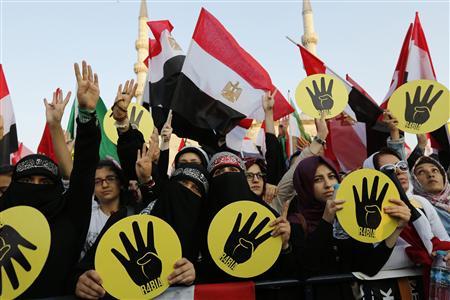 Don’t hold your breath if you are waiting to read the British government’s controversial review of the Muslim Brotherhood.
Don’t hold your breath if you are waiting to read the British government’s controversial review of the Muslim Brotherhood.
It could be months yet before this sees the light of day – a reflection of difficulties over how to handle an extremely sensitive topic as well as wider confusion about the role of political Islam after the disappointments of the Arab spring.
Downing Street is still refusing to say when or how it will release the review, which was ordered by David Cameron in April amidst accusations that he had bowed to pressure from the UAE, Saudi Arabia and Egypt – all viscerally hostile to Islamists as well as heavyweight allies and trading partners for the UK. But the word in Whitehall is that it is still not imminent. And if it has not appeared by March it may then be too close for constitutional comfort to May’s general election – which means it might never surface at all.
The project, entrusted to Sir John Jenkins, Britain’s widely-respected ambassador to Riyadh, was to look at the Brotherhood given its role in Egypt until the overthrow of the democratically-elected but hugely unpopular Mohamed Morsi by the army – as well as its Arab and international network. Brotherhood involvement in Britain was examined by Charles Farr, head of security and counter-terrorism at the Home Office. The brief was to examine “the philosophy, activities, impact and influence on UK national interests, at home and abroad, of the Muslim Brotherhood and of government policy towards the organization.”
The twist in this bureaucratic tale is that Jenkins finished the job months ago and the government has been struggling ever since over how to translate his findings into policy recommendations. Nothing has been found to justify the accusation that the Brotherhood is involved in terrorism – something it strenuously denies. So the question remains: what will Cameron say? Its ideology is likely to be criticized, though the most problematic link is with Hamas, the Palestinian Islamist group which controls the Gaza Strip and is proscribed as a terrorist organization in Britain, the EU, Israel and US.
Back in the spring there were complaints that the review had been launched in response to lobbying from the Emiratis, whose crown prince, Mohamed Bin Zayed, is described as obsessively anti-Islamist. The new complication is that the UAE has gone further recently, publishing a list of 83 organizations it has banned because of alleged links to terrorism. Awkwardly, these include Islamic Relief, Britain’s biggest Islamic charity, the Council for American Islamic Relations (CAIR), the Muslim Association of Britain and the UK-based Cordoba Foundation – all named alongside the Islamic State (Isis), Boko Haram and al-Qaida, which all boast of a violent jihadi agenda.
Anas Altikriti, who runs the Cordoba Foundation – a think tank devoted to building bridges between Islam and the west – is neither surprised nor upset that the review appears to be in trouble. “I think it’s too embarrassing because there are people in Whitehall who have made promises to business partners and political partners in Abu Dhabi and Riyadh that the UK will come down heavily on the MB. There has been very substantial pressure to come out and do something about it – for example to refuse entry to MB people seeking refuge from Egypt. But the fact is that the Jenkins report came back and said these people are not terrorists.”
The broader context, he argues, is that the British and other western governments are failing to distinguish between different sorts of Islamists, lumping all together and hindering their ability to fight the real extremists. “If we are in a war against Isis then the last thing you do is to ban or attempt to criminalize the closest thing you have to a middle ground. You may hate the Muslim Brotherhood, but they are in a sense semi-democrats. If they had been given the chance, during the time of Morsi, or been allowed a full term, then maybe by the end of it they would have become better democrats. When people accuse Islamists of being non-democrats, my argument is that that’s because they have never been given the chance. Give them the chance and they will be forced to open up and they will be forced to liberalize and sideline their hardliners.”
Eradicating the middle ground, Altikriti warns, means that Muslims may have nowhere to go but the extremes. “Islamists are a safeguard for Britain’s security against the invasion of extremists. We want the British government to see us as part of the solution, not as the problem. It doesn’t look as if that ls going to happen with this report.”
Hamas is not in fact a proscribed terrorist organisation in the UK. It is the Al Qassam Brigades, the military wing of Hamas, that is proscribed. As for the European Union, a recent ruling the General Court removed Hamas from the EU’s terrorist blacklist.
